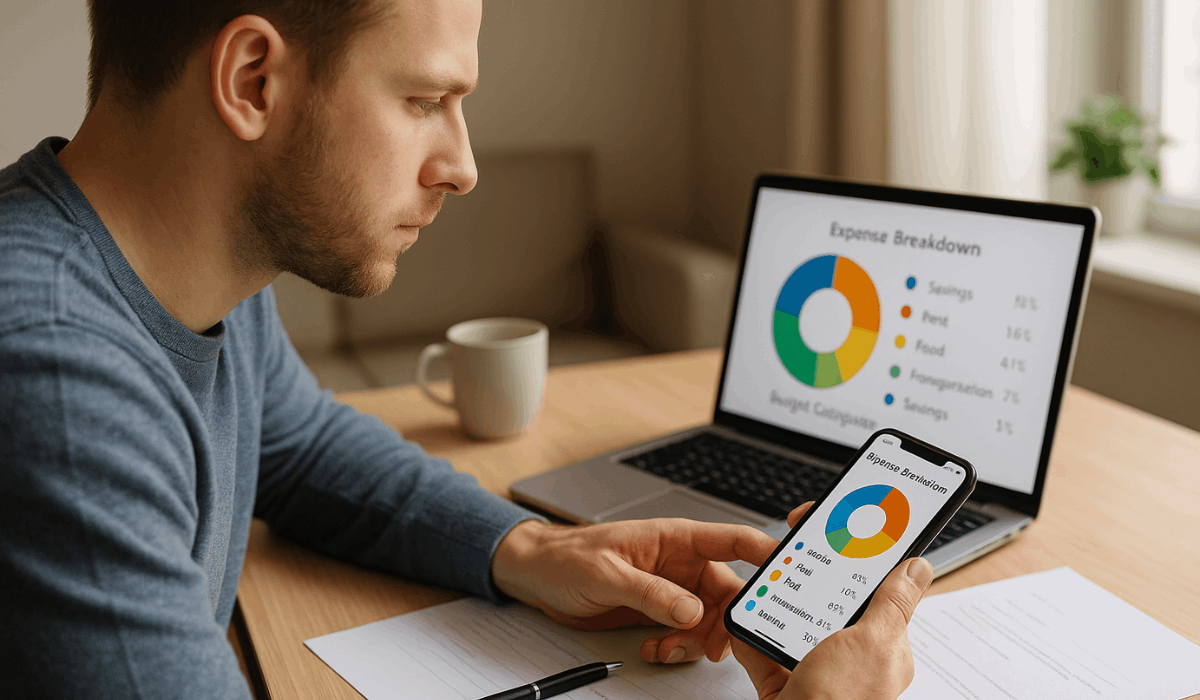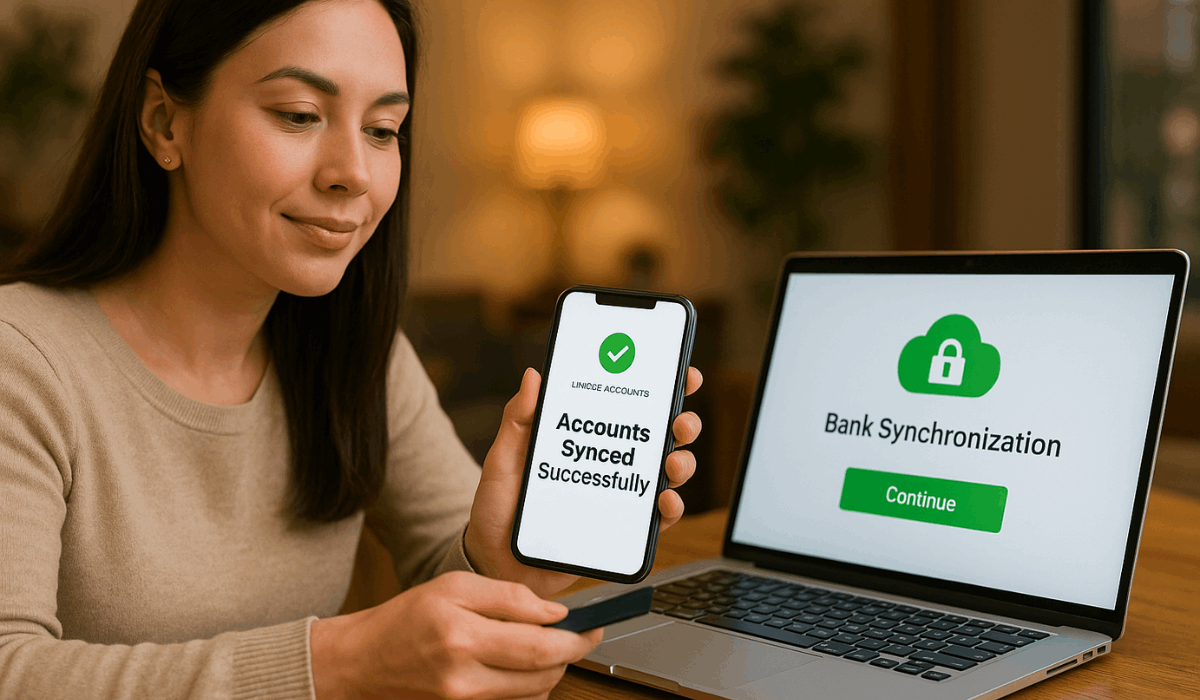Managing your money starts with understanding where it goes.
Personal finance apps make it easier to track expenses, stay within budget, and reach your savings goals.
With the right app, you can monitor your spending habits and make smarter financial decisions every day.
Why Monitoring Expenses Matters
Tracking your expenses is the foundation of financial control. It helps you understand how and where your money is spent, making it easier to plan.
When you monitor your spending closely, you can correct habits and reach your financial goals faster.
- Creates financial awareness: You see exactly where your money goes each month.
- Prevents overspending: Knowing your limits helps you make better spending decisions.
- Supports savings goals: By spotting unnecessary expenses, you can redirect funds to savings.
- Improves budgeting accuracy: Expense tracking provides real data to set realistic budgets.
- Reduces debt risk: Monitoring helps you avoid relying on credit for daily spending.
- Encourages accountability: Regular tracking builds discipline and money awareness.

Key Features to Look for in Personal Finance Apps
Choosing the right personal finance app makes money management easier and more effective.
The best apps offer features that simplify tracking, budgeting, and saving so you can stay in control of your finances.
Look for tools that help automate and personalize your experience.
- Automatic expense categorization: Organizes spending into clear categories like food, rent, and transportation.
- Bank account synchronization: Links your accounts for real-time tracking and updates.
- Custom budgeting tools: Lets you set spending limits and savings goals.
- Spending analytics and reports: Provides charts or summaries showing where your money goes.
- Bill reminders and alerts: Helps you avoid late payments and manage recurring expenses.
- Data backup and multi-device access: Keeps your information safe and accessible anywhere.
- Security features: Includes encryption and two-factor authentication to protect your financial data.
Best Personal Finance Apps for Beginners
Starting with a personal finance platform can simplify your budgeting. The right app helps you track spending, set goals, and build better habits.
Below are solid choices if you’re just getting started.
- PocketGuard – Links bank accounts, categorizes spending, and shows how much you can safely spend.
- Goodbudget – Uses the envelope budgeting method; simple, cross-platform, suitable for households.
- Simplifi by Quicken – All-in-one app for budgeting, spending tracking, and goal-setting; beginner-friendly interface.
- You Need a Budget (YNAB) – Teaches you a budgeting method (every dollar has a job); more hands-on but practical.
Free Personal Finance Apps With Certificates or Rewards
Choosing a free app that offers rewards or certificates adds an extra incentive to manage your finances.
These apps not only help you budget and track spending but also encourage you to stay engaged with your money. Here are some notable apps you may consider.
- Zogo – A free financial-literacy app where you complete short lessons and earn points you can redeem for gift cards.
- Wallet by BudgetBakers – A free budgeting tool with learning features that build good habits, though rewards are limited.
- Fetch Rewards – A free app where you scan receipts or shop online and earn points redeemable for gift cards.
- Step – A free all-in-one money app offering unlimited cashback and rewards when you use it for purchases.
- MaxRewards – Free app that tracks your credit cards and everyday spending so you can earn cash back and rewards automatically.
How to Use a Personal Finance App Effectively
Having a personal finance app is useful only if you use it consistently. Developing simple habits ensures the app truly improves how you manage money.
Follow these practical steps to make the most of it.
- Link your accounts and set categories: Connect your bank or cards and organize spending into categories like food, bills, or travel.
- Set clear financial goals: Define what you’re saving for, whether it’s an emergency fund or debt repayment.
- Review spending regularly: Check weekly or monthly summaries to identify where you can cut costs.
- Adjust your budget as needed: Update limits or goals when your income or expenses change.
- Use alerts and reminders: Turn on notifications to avoid missing payments or overspending.
- Track your progress: Monitor savings growth and spending trends to stay motivated.
Privacy and Security in Money Management Tools
Protecting your information is essential when managing money digitally. These key features help keep your data safe and private.
- Encryption: Ensures all your financial data is protected from hackers using bank-grade AES-256 standards.
- Two-Factor Authentication (2FA): Adds a second layer of security to verify your identity during login.
- Privacy Policy: Explains how your information is collected and used, ensuring transparency.
- Manual Entry: Lets you input transactions manually without linking bank accounts for extra privacy.
- Auto Logout: Automatically signs you out after a period of inactivity to prevent unauthorized access.
- Permission Control: Allows you to limit app access to sensitive data, such as location or contacts.
- Regular Updates: Keeps the platform secure with frequent patches and new protection measures.

Integrating Expense Apps with Banking and Investment Accounts
Linking your expense tracker with bank and investment accounts simplifies money management.
It gives you one dashboard to view income, spending, and assets. This saves time and provides a clear picture of your finances.
- Centralized view: Combines checking, savings, and investment data in one place for easier tracking.
- Automatic updates: Syncs transactions in real time, reducing manual entry and errors.
- Cash flow insights: Shows how your spending affects savings and investments.
- Portfolio tracking: Lets you monitor stock, crypto, or fund performance alongside expenses.
- Security protocols: Uses encryption and authentication to keep linked accounts safe.
- Goal alignment: Helps balance daily spending with long-term investment objectives.
- Simplified reporting: Generates combined financial summaries for budgeting and planning.
Benefits of Monitoring Expenses Digitally
Tracking your spending digitally helps you stay organized and make informed financial decisions.
It gives you real-time insight into your habits, making budgeting and saving easier. Here are the main benefits you gain from monitoring expenses this way.
- Real-time tracking: Instantly see where your money goes without manual calculations.
- Accurate budgeting: Automated records make it easier to stick to your spending plan.
- Spending insights: Charts and reports help identify areas where you can save more.
- Fewer missed payments: Alerts and reminders prevent late fees or overdrafts.
- Goal tracking: Visual progress enables you to stay motivated toward savings or debt goals.
- Data backup: Cloud storage keeps your financial history safe and accessible anytime.
Conclusion: Start Tracking, Start Saving
Monitoring your expenses with Personal Finance Apps helps you stay organized and make informed financial decisions.
These tools simplify budgeting, track your spending, and guide you toward your savings goals.
Start using a trusted Personal Finance App today to take full control of your financial future.











